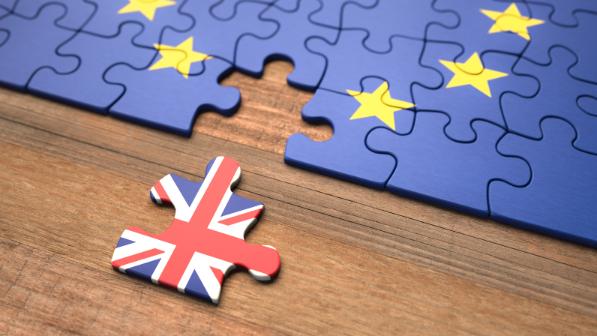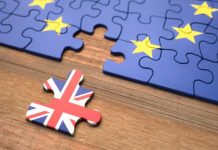This article is written by S A Rishikesh, from Institute of Legal Studies, Shri Ramswaroop Memorial University, Lucknow. This article highlights the impact of the Brexit deal on trade and business and the additional paperwork needed to be done post-Brexit.
Table of Contents
Introduction
Separating from the largest trade partner is not easy. The 2019 statistics show the European Union taken as a whole was the largest trading partner of the United Kingdom of that year. UK exports to the EU were 294 billion GBP or British Pound Sterling (i.e., 43 percent of all UK exports). Similarly, the imports from the EU were 374 billion GBP or British Pound Sterling (i.e., 52 percent of all UK imports). When the United Kingdom was part of the European Union this trade was tariff-free and did not involve customs. But with Brexit and the new trade deal between the United Kingdom and the European Union, the business has to do a lot of paperwork to protect their rights and conduct their course of business smoothly.
Background
The people of the United Kingdom were asked to choose on June 23, 2016, about the membership of the United Kingdom (UK) in the European Union (EU). The choice was simple to continue normally and remain a member or withdraw from the European Union. The predecessor of the European Union was the European Economic Community (EEC). It was formed in 1957. The United Kingdom was not one of the founding members of the European Economic Community. Belgium, France, Italy, Luxembourg, the Netherlands, and West Germany were the original founding members. The United Kingdom joined the European Economic Community in 1973. Notably, it was the third attempt of the United Kingdom; its earlier two attempts failed because the then French President, Charles de Gaulle, had vetoed their application twice because he believed that Britain was incompatible with Europe.
The French President may have been correct. Immediately two years after joining the EEC, there was a referendum in the UK to leave the EEC. The United Kingdom joined the EEC under the conservative government of Edward Heath, but as the government changed, Labour Prime Minister, Harold Wilson, was against the decision to join the EEC so he held a referendum and left the decision to the people. The referendum was hugely in favour of retaining the membership as 67% of the people voted to stay and continue as the member of EEC.
In the year 1992 European Union was formed by the Maastricht Treaty, the European Union formally came into existence on November 1, 1993, it was more than a simple economic union. The European Union was more of a political union. The United Kingdom has always enjoyed a special status within the European Union. Immediately after the creation of the European Union, the concept of the single shared currency ‘Euro’ was introduced. It was created to be used as a single currency across Europe. Many members of the European Union dropped their own currency and adopted the Euro. The countries that used the Euro as their currency were part of what is known as the eurozone. The United Kingdom was never part of this eurozone and continued to use its own currency ‘Pound Sterling’. Similarly, the European Union had established the Schengen Area, it was an agreement that abolished border controls between the member states which means it allowed freedom of travel among all the member countries without the need to show a passport. The United Kingdom was not a part of this agreement also.
Reasons for the referendum
The United Kingdom was never like other members of the EU. The UK has always received special treatment in the European Union. So, what exactly led to the referendum in the UK to leave the EU in the first place. In the last few decades, the United Kingdom has witnessed the growing phenomenon of Euroscepticism. It means criticizing Europe and the UK for membership within the European Union. The biggest sign of it was seen as the rise of the United Kingdom Independence Party (UKIP) and their leader Nigel Farage. In the European parliamentary elections of 2014, UKIP won the most seats this was a shock for the Conservative and the Labour party as they have dominated British politics for a century. It was the first time since 1906 that an election has been won by anyone other than the conservatives or the labourers.
The general elections of 2015 were also the reason why this referendum came into first place. Prime Minister David Cameron at that time had promised in his campaign that if the conservatives win the elections the United Kingdom will hold a referendum on European Union membership. The only reason why he did so was growing Euroscepticism within his own party. It was done to appease the party’s members, as David Cameron did not want to leave the European Union. As a result of David Cameron’s election victory, he maintained his word, and the referendum date was determined.
The major issues that popped up and later became the reason for the United Kingdom leaving the European Union were the immigration, cost of membership, sovereignty, and the European Union laws which gave the slogan of ‘take back the control’, the addition of new countries in the European Union, and the migrant crisis.
Result and aftermath
On June 23rd the referendum day arrived, all the British and the Commonwealth Citizens living in the United Kingdom were eligible to vote, European Union citizens who were living in the United Kingdom were not eligible to vote. The very next day the results were announced and the United Kingdom voters had voted to leave the European Union, with 52% votes in favour of leaving the membership of the EU and 48% votes in favour of continuing the membership of the EU. These results were celebrated by the UKIP leader Nigel Farage, who said that the 23rd of June should be celebrated as the UK’s Independence Day. While Prime Minister David Cameron resigned from his post and called for fresh leadership.
Theresa May later replaced David Cameron as the Prime Minister of the United Kingdom. The UK government then invoked Article 50 of the Lisbon treaty. Brexit was finally over under the leadership of Boris Johnson. The UK officially left the European Union in January 2020 but nothing much changed because the country went into the transition period. During the transition period, negotiations continued between the leaders of the UK and the EU to strike a deal, and in this transition period, the UK followed all the rules and regulations of the EU.
Brexit deal
After four and half years of the referendum the United Kingdom and the European Union finally agreed on a trade deal which became effective from 1st January 2021. This more than twelve hundred pages agreement is more than just trade; it covers everything from food and drinks to immigration from fishing to counter-terrorism.
Impact on trade and business
The United Kingdom leaves the single European Union market and customs union. For most UK companies, it means getting used to new laws and potentially doing more paperwork as well. Under this new trade deal, there would be no tariffs which means that the companies that import and export goods between the European Union and the United Kingdom won’t have to pay any extra cost if the goods have originated in the United Kingdom of the European Union. Free movement of the workers from the European Union to the United Kingdom or vice versa will also be affected, as the workers now have to go through the visa process.
Necessary Documents
Employees
Employees who are working in the United Kingdom and hold the citizenship of the European Union (EU), European Economic Area (EEA), and Switzerland will have to register for the EU Settlement Scheme. The last date to do so was June 30, 2021. Since the last day has already passed there is a provision for late applicants. Late applicants will be entertained if they fall under the following reasonable grounds, including, but not limited to, the following:
- Where a parent, guardian, or Local Authority has failed to apply on behalf of a child.
- Where a person has or had a serious medical condition, which meant they were unable to apply by the relevant deadline.
- Where someone is a victim of modern slavery or is in an abusive relationship.
- Where someone is isolated, vulnerable, or did not have the digital skills to access the application process.
- Where a person was unable to apply by the relevant deadline for compelling practical or compassionate reasons – including in light of the coronavirus pandemic.
Application is free to apply and can be applied for online. Failure to comply would mean suspension of your rights. The rights include your rights to live, work, study, and access benefits and services in the UK.
Tariffs
Tariffs or custom duties are taxes levied on imports. From January 1, 2021, tariffs on imports to the United Kingdom would depend on the trade deals that the United Kingdom has signed with various countries, it may differ country wise or maybe on the lines of the World Trade Organisation (WTO) since it is no longer part of the European Union. Before Brexit, there were no tariffs within the European Union customs union and the rest of the world had to follow the EU tariff rates for trading with the United Kingdom.
The UK-EU Free Trade Agreement (FTA) clearly mentions that there will be no tariffs on imported goods to the UK that ‘originate’ in the EU and vice versa. Origin will be a key if a good is moved between the UK and EU. If origin will not be satisfactorily proved tariffs will apply.
Rule of origin is complex and product-specific. It is present in detail in Annexes ORIG-1 and ORIG-2 of the Trade and Cooperation Agreement (TCA) between the UK and EU. The origin can be proved in two ways:
Self-declaration by the exporter
The exporter may provide the statement of origin. It should be in accordance with the Annexe ORGI-4 of the TCA. The exporter may then be responsible for the correctness of his/her statement, which in case found false will be subjected to extra tariff.
Importers knowledge
In this case, the importer can rely on the information provided to him by the supplier. Supplier declaration must be in accordance with the ORGI-3 of the TCA.
For trading with other countries (non- EU members) tariff would depend on the following four elements:
- The customs value of goods.
- The type of the good (Commodity Code).
- The country they are being imported from.
- Where they have originated.
Customs
From January 1, 2021, the UK is a separate customs territory from the EU. The traders will have to comply with the customs rules of both the EU and the UK. Business would require an Economic Operation Registration and Identification (EORI) number to import or export goods from the United Kingdom or the companies can hire a person or another company to deal with customs for them.
Other changes
In case a person is travelling to the EU countries for business purposes that include: travelling for meetings and conferences, providing services (even with a charity), touring for art or music, taking goods to sell. Will not be able to stay there for more than 90 days within a time frame of 180 days without a visa. A declaration must be made by the person travelling to or from the EU if they are carrying more than 10,000 British Pound (Pound Sterling).
The UK goods vehicle operators will now be required to follow the international road haulage. All the vehicles must be registered as per the EU standards, vehicles and trailers must have insurance and GB stickers. The drivers need to have a valid UK driving license, a valid driver Certificate of Professional Competence (CPC) card, a valid passport, an International Driving Permit (IDP) if they need one for the countries they’re travelling in and healthcare documents.
A special license would be required to import or export certain goods (e.g. waste, certain hazardous chemicals, GMOs). Also in certain cases importing or exporting excise goods (alcohol, tobacco, or fuel) to/from Great Britain, the business will have to comply with additional formalities.
VAT rules and procedures will be different for transactions with Great Britain than for transactions within the EU and with Northern Ireland.
Conclusion
For the time being, it can be said that Brexit is finally over. This new trade deal will determine the relations of the United Kingdom and the European Union for many years to come. This last-minute trade deal has impacted the people from both sides whether being security checks at borders or employing new people, while the government is trying its best the ongoing pandemic is giving severe blows to its efforts. The long-term effects of this deal are hard to measure at this time.
References
- https://www.gov.uk/guidance/brexit-guidance-for-businesses
- https://www.gov.uk/government/collections/eu-settlement-scheme-employer-toolkit
- https://www.gov.uk/government/publications/eu-settlement-scheme-information-for-late-applicants/eu-settlement-scheme-information-for-late-applicants
- https://www.icaew.com/brexit/customs-processes/brexit-planning-determine-where-your-goods-originate
- https://www.traverssmith.com/knowledge/knowledge-container/a-business-friendly-guide-to-the-uk-eu-brexit-trade-deal/
- https://ec.europa.eu/info/sites/default/files/brexit_files/vat-goods_en.pdf
- https://ec.europa.eu/info/sites/default/files/brexit_files/vat-services_en.pdf
- https://www.euronews.com/2020/01/30/brexit-timeline-2016-2020-key-events-in-the-uk-s-path-from-referendum-to-eu-exit
- https://europa.eu/european-union/about-eu/history_en
- https://blog.ipleaders.in/everything-know-brexit/
Students of Lawsikho courses regularly produce writing assignments and work on practical exercises as a part of their coursework and develop themselves in real-life practical skills.
LawSikho has created a telegram group for exchanging legal knowledge, referrals, and various opportunities. You can click on this link and join:
https://t.me/joinchat/J_0YrBa4IBSHdpuTfQO_sA
Follow us on Instagram and subscribe to our YouTube channel for more amazing legal content.
 Serato DJ Crack 2025Serato DJ PRO Crack
Serato DJ Crack 2025Serato DJ PRO Crack










 Allow notifications
Allow notifications


